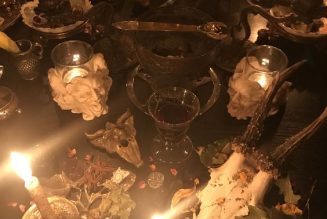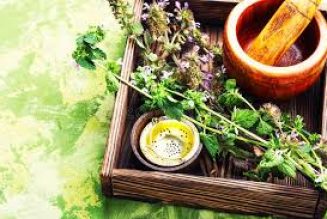Gardening is one of the most creative things you can do and an exercise in mindfulness. It keeps you grounded with a deep connection to the earth. Growing herbs to use in remedies and spellcraft is doubly rewarding; with each passing season, you will grow in your wisdom and skill. Your garden—whether it is a balcony full of blooms or a plot out back—can be a sanctuary, a place where your spirit is renewed and restored. Tending and growing these magical herbs and potent plants is a kind of botanical alchemy; the teas, tinctures, potions, recipes, and flower essences you craft are proof that yours is an enchanted garden.
Herbs for Healing and Happiness
834 views























